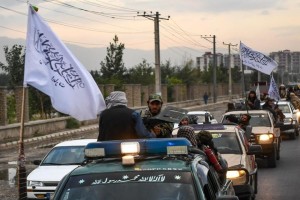
Afghanistan
Kabul/New York: Even as the Taliban announced an ‘acting’ government in Afghanistan on September 7, 2021, from the United Nations’ Secretariat’s standpoint, only a negotiated and inclusive settlement will bring sustainable peace to Afghanistan.
The Taliban named Mullah Hasan Akhund as the head of Afghanistan’s new government, with Mullah Abdul Ghani Baradar, head of the movement’s political office, as deputy, on September 7, 2021. Significantly, Sarajuddin Haqqani, son of the founder of the Haqqani network, designated as a terrorist organization by the United States, will be the new interior minister. In the meantime, it was not clear what role in the government would be played by Mullah Haibatullah Akhundzada, the Taliban supreme leader.
The U.S. Embassy in Kabul has already suspended all operations on August 31, and the US government had withdrawn its personnel from Kabul. However, Russian Foreign Minister Sergey Lavrov said in Moscow that Russia is ready to support the formation of a government “that will reflect the entire range of Afghan society, including the Taliban and other ethnic groups, which will not only include the Pashtuns but also Uzbeks, Hazara and Tajiks”.
China stated today it attaches importance to the Afghan Taliban’s announcement of the formation of an interim government and some key roles. “This has put an end to the anarchy in Afghanistan that lasted for over three weeks and is a necessary step for Afghanistan to restore domestic order and pursue post-war reconstruction…The Chinese Embassy in Afghanistan is operating normally. We stand ready to maintain communication with the new Afghan government and leaders,” Chinese Foreign Ministry Spokesperson Wang Wenbin, said in Beijing.
China further stated it hoped the new Afghan administration in the capacity of interim government will broadly solicit the opinions of all ethnic groups and factions and live up to the expectation of the Afghan people and aspiration of the international community. “We noted that the Afghan Taliban stressed that all people will benefit from the new administration,” Wenbin said.
The Afghan issue actually has made China come out openly against the USA more aggressively. While the head of US Central Command, Frank Mckenzie, reportedly conceded that destroyed dozens of aircraft at the Kabul airport before leaving, including Afghanistan’s civil aircraft, Wenbin said the US troops had been “wreaking havoc in Afghanistan and inflicting serious damage on the Afghan people from the very first day of its invasion to the last minute of its withdrawal”. Wenbin asked: “The US side claimed that its troops already accomplished their mission in Afghanistan. What is that mission? To destroy the country, harm its people and even create more obstacles for peace and reconstruction at the eleventh hour of withdrawal?”
One thing is, however, undisputedly clear that Afghanistan is severely reeling under crises. A top UN Emissary has said in Kabul that almost half of the population — 18 million people — need humanitarian assistance to survive,
According to Martin Griffiths, Under-Secretary-General for Humanitarian Affairs and Emergency Relief Coordinator for the United Nations, who is currently in Kabul, one third population in the country do not know where their next meal is coming from.
“More than half of all children under five are at risk of acute malnutrition. A severe drought, the second in four years, will further contribute to hunger in the months ahead. Now more than ever, the people of Afghanistan need the support and solidarity of the international community,” he stated.
During his visit, Griffiths met with Mullah Baradar and the leadership of the Taliban in Kabul to engage with the authorities on humanitarian issues on Sunday, September 5. “Further meetings are expected in the coming days,” Farhan Haq, Deputy Spokesman for the United Nations Secretary-General, said in New York on September 7, 2021.
In the meeting with Baradar, Griffiths had reiterated the humanitarian community’s commitment to deliver impartial and independent humanitarian assistance and protection to millions of people in need. He had further emphasized the critical role of women in the delivery of aid and called on all parties to ensure their rights, safety and well-being. He called for all civilians — especially women and girls and minorities — to be protected at all times.
“The authorities pledged that the safety and security of humanitarian staff, and humanitarian access to people in need, will be guaranteed and that humanitarian workers — both men and women — will be guaranteed freedom of movement. The authorities committed to cooperate with the humanitarian community to ensure assistance is delivered to the people of Afghanistan,” Griffiths stated.
Meanwhile, as Afghanistan faces a looming humanitarian catastrophe, the UN Secretary-General Antonio Guterres has convened a high-level ministerial meeting to address the growing humanitarian needs in the country. “An urgent scale-up in funding is required so the lifesaving humanitarian operation can continue,” Haq said.
– global bihari bureau





